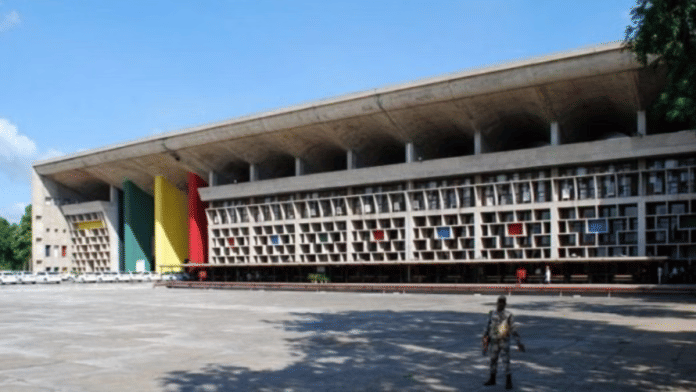Gurugram: The Punjab and Haryana High Court has criticised the Army and the Centre for the “sorry state of affairs” in refusing to regularise services of workers who have been serving for over three decades at military farms. In the process, the high court dismissed a bunch of 17 writ petitions moved by the Army, upholding a Central Administrative Tribunal (CAT) direction to abide by a 1999 order to regularise these workers.
The bench pointed out inconsistencies in the Army’s arguments regarding abolitions of posts, pointing out that these were actually abolished in 2020, not in 2018 as claimed to “hoodwink” the court.
“It is a sorry state of affairs that the authorities of the Army are appearing before this court so as to withhold the advantage of regularisation of service from the employees, who have served for a period of over three decades and that too based on the wrong facts and by playing with the facts, not only before the tribunal but before this court also,” a division bench of Justices Harsimran Singh Sethi and Vikas Suri said in its 13 August judgment.
The workers include those recruited to military farms from 1988 onwards. These workers, mostly daily-wagers, had approached the CAT in 1998 seeking regularisation of services.
The next year, the tribunal ordered the Centre to consider their cases, if they had worked for over a decade. Though some were regularised, many were not considered for jobs, even though they had been serving military farms without a break.
This group of workers submitted new applications before the CAT in 2017. In February 2019, the tribunal disposed of these applications, observing there were 64 vacant posts for regularisation and directing the Centre to examine their claims on these vacancies.
In June that year, the Centre dismissed their claims broadly on two key grounds: names of the employees were not sponsored by the Employment Exchange, and the 64 vacancies had been abolished on 24 September, 2018, meaning there were no vacancies.
The aggrieved workers again petitioned the CAT, which in March this year held that the rejection of their applications was not according to the 2019 order. It ordered the Centre and the Army to comply with the said order “in letter and spirit”.
The Centre then contested this CAT order on the 17 writ petitions, on the basis that the posts stood abolished and that no regularisation could be done.
Also Read: How Punjab & Haryana HC backed Panchkula man’s quest for truth about his parentage
Scathing observations
The Centre’s submissions rejecting the 1999 CAT recruitment order citing lack of employment exchange sponsorship constituted contempt of court, the division bench said.
Regarding the abolition of posts, the high court highlighted glaring contradictions. While the Centre claimed that the 64 posts were withdrawn in September 2018, evidence on record, including a letter dated 10 August, 2020, showed that 1,399 vacant posts in Defence Civilian Military Farms were abolished only then. “This indicates that the respondents’ claim was dismissed by the petitioners on the premise of false facts,” the high court said, asking why this was not brought before the tribunal in 2019 or questioned at once.
It also pulled up the Centre for accepting the 2019 CAT order without appeal, only to turn down the claims later on trumped-up grounds with the aim of “hoodwinking the court”.
The bench observed that the employees remained at work up to February 2020, even after the claimed closure of military farms, and were receiving salaries, which eroded the claim of abolition.
“Once, the respondents were indeed performing the tasks even after the passing of the order dated 18 February 2019, then how can it be held that the respondents were not working due to shutting down of the military farm or abolition of 64 posts?” it asked.
The high court referred to three judgments of the Supreme Court to reinforce the requirement for regularisation following extended service of these workers.
It quoted the State of Karnataka vs. Uma Devi (2006) ruling in which the top court directed regularisation on a one-time basis for workers with more than 10 years’ service who were not otherwise protected legally.
Similarly, the bench referred to the Jaggo vs. Union of India (2024) ruling that clarified procedural faults cannot deprive long-serving employees engaged in vital jobs of substantive entitlements.
The judges also quoted the SC’s decision in Prem Singh vs. State of Uttar Pradesh
(2019) that ordered regularisation for employees with 30-40 years of service.
The respondents had 32 years of service up to 2020, the high court said, asserting that they must not be left unemployed after such commitment.
(Edited by Tony Rai)
Also Read: When SC stepped in, summoned EVMs & reversed outcome of a panchayat poll in Haryana’s Panipat






